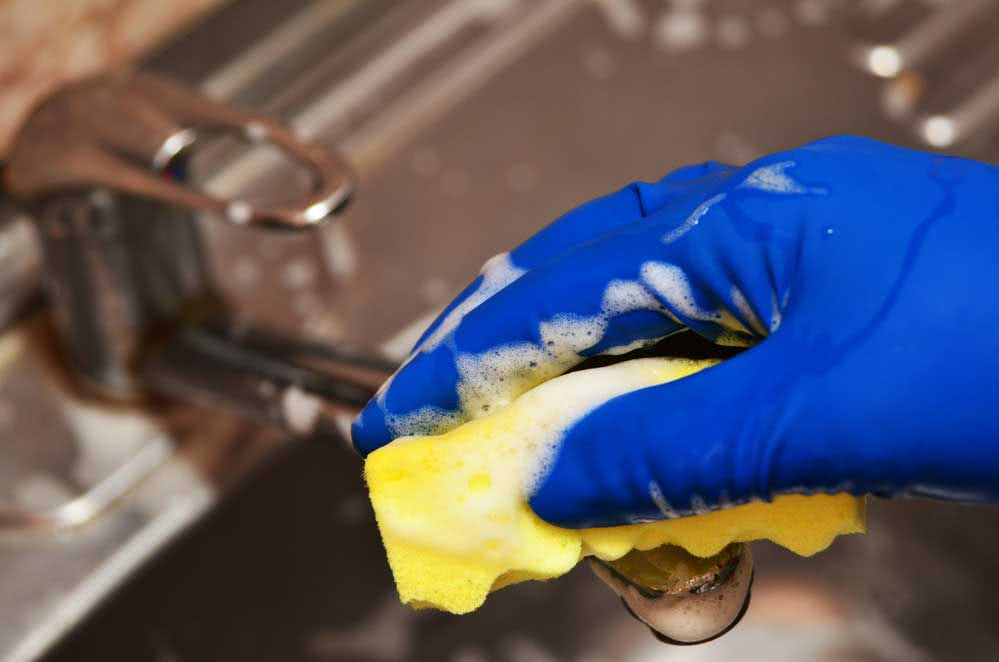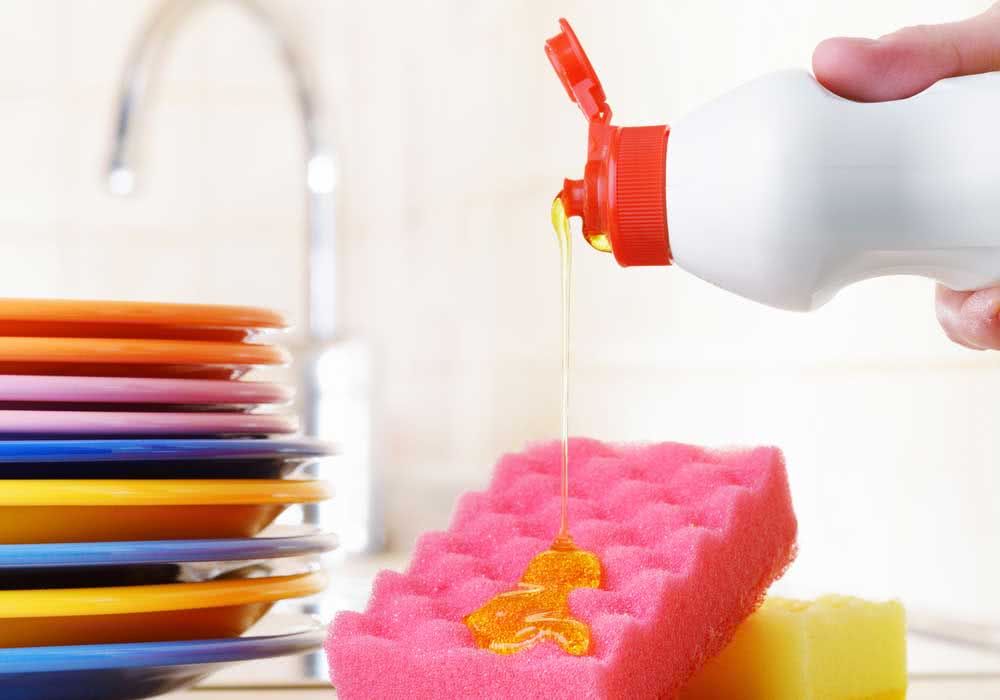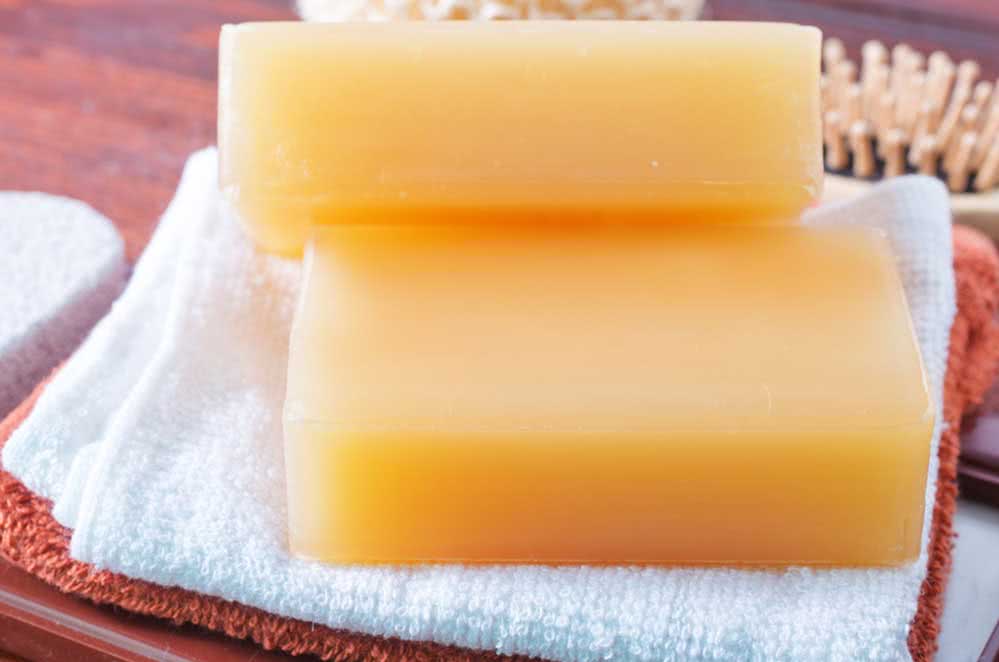Did you know that there is a difference between soap and detergent? Yes there is! Apparently everything looks the same, but it is not.
Basically, both are products used for cleaning and removing grease, but they differ in three main aspects: formula, cleaning power and environmental impact.
Shall we better understand this story?
Difference between soap and detergent: the formula

The first aspect to be considered and that ends up directly interfering in the others is the formula or chemical composition of the soap and detergent.
Soap is one bought in bars that you use to wash clothes, wash dishes and perform other household tasks.
This is already one of the main differences between soap and detergent.
But does not stop there.
Soap has a, say, softer formula than detergent. This is because soap, since the world is a world, is made only of oils and fats (both animal and vegetable) that react with sodium hydroxide or caustic soda, as it is also popularly known.
This mixture gives the soap the expected cleaning power.
The detergent … this is very different!
The vast majority of detergents are liquid and are present not only in that long package you use for washing dishes.
Detergents are everywhere in your home: in the washing bottle, in degreasers and even in your shampoo.
The detergent formula includes sulfuric acid, a petroleum derivative highly harmful to the environment.
However, it is precisely this acid that is able to more efficiently eliminate the fat impregnated in dishes, clothes and objects.
Difference between soap and detergent for the environment
Once you understand the difference in chemical composition between soap and detergent, it is easy to find out which one is more environmentally friendly.
And you just scored points with the planet if you thought about soap. That’s right! Every time you choose to use soap instead of detergent you are contributing to a more sustainable world. Do you know why?
The soap formula is considered biodegradable, because when it reaches rivers and seas, the compounds present in the soap are naturally decomposed by the microorganisms present in the water and, consequently, it does not cause impacts or environmental damage.
Detergent is a real problem for the environment. The chemical compounds present in the product are not biodegradable and accumulate on the surface of the water, promoting the death of fish and all aquatic life.
You may have seen those images of foam-covered rivers.
This foam and the other components prevent the penetration of light into the water, taking away the photosynthesis capacity of aquatic species.
Not to mention that these substances « steal » oxygen from the water, further contributing to the death of animals and plants that live in rivers.
Which cleans better: soap or detergent?

The detergent cleans better. But calm down! We will understand better how this is possible.
First, it’s important to know that water and oil don’t mix, right? With that in mind, it becomes simpler to understand how these products act.
In a very simplified way it works like this: when it comes in contact with dirt, soap and detergent, the fat molecules unite and drag them out of the object being cleaned.
However, soap has acids considered to be « weaker » because they do not have the same capacity to capture fat molecules and release them.
The detergent, on the other hand, is able to capture these molecules more easily, removing them more quickly and with less effort.
What to use then: soap or detergent?
Let’s resume the main characteristics of each one so that you can make that decision.
Soap is biodegradable, that is, it does not harm the environment. It removes dirt and grease, it is cheap and it yields a lot, but it has a less efficient cleaning power when compared to detergent.
The detergent is aggressive to the environment, it is not biodegradable, it is derived from petroleum components, which makes it more aggressive also for human health. However, the cleaning power is greater than that of soap.
But before hitting the hammer and making a decision on which product to use, consider two important things: the water temperature and the cleaning movement.
Hot or warm water has a greater capacity to degrease than cold water. So even if you use detergent, if the water is too cold, the fat will become more resistant.
Another detail that determines the effectiveness of cleaning is how much you dedicate yourself to it, that is, how much you put your hand to work.
There is no magic in cleaning, if you don’t scrub it, it won’t come out. Therefore, much of the effectiveness of these products is related to their direct involvement.
Knowing all of this, the tip now is: use the detergent only when you need to clean something that is really, really greasy.
In addition, use soap. It is cheaper, softer and does not pollute the environment.
Liquid soap: exists and can be done at home

If the idea is to encourage the use of soap instead of detergent, then there is nothing more fair than teaching you how to make liquid soap at home using bar soap. This makes your life easier and the environment thanks you.
Let’s learn?
Liquid soap recipe made with stone soap
You will need:
- 1 bar of 200grams stone soap (coconut is the best, but you can use one of your own, including those made at home)
- 3 tablespoons of baking soda
- 3 liters of water
- Essential aroma oil you prefer (if you use it for dishwashing, the most recommended is not to use aroma to not impregnate the dishes)
- 1 large pot
- 1 grater
- 1 sieve
Step by step:
Start by bringing a liter of water to the boil to the fire. Then, grate the soap on the stone and place these zest in the hot water.
When the shavings start to melt and dissolve add the baking soda. Mix well and let this mixture sit for an hour.
After that time, add another liter of warm water to the mixture and then pass everything through a sieve to eliminate the undissolved pieces of soap.
The next step is to add the essential oil. Drop about 20 drops of your favorite oil.
But be careful, never put the essential oil in the hot mixture. This is because these oils evaporate at high temperatures and lose all their properties, including aromatics.
After adding the essential oil, add the third and last liter of water, this time it should be cold.
Mix everything very well. Let the liquid stand for a few more minutes.
Now it’s ready!
Divide the liquid soap you just made into smaller pots and use as you prefer: washing dishes, washing clothes, washing the floor, among other things.



